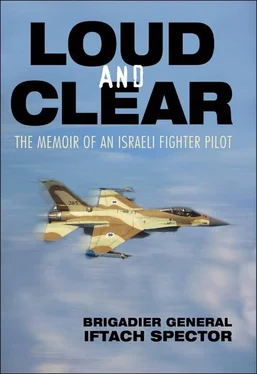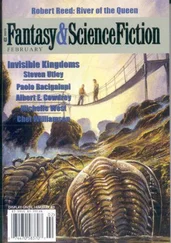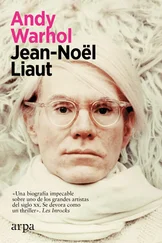When I came to my senses again, I was skimming over a white dirt road, still in the air and trying to regain speed and escape from the low hills around me. Umsh had disappeared somewhere. I saw his plane again only later, when I got behind him in line for a landing at Tel Nof. When we shut our engines and dismounted our aircraft, we ignored each other.
In the evening, in our room, when the two of us were safe from any eavesdropping, Umsh shot me a mocking smile. Hurt, I said to him, “Come on, Umsh, what’s that smile on your face, huh? I beat you, didn’t I?”
He didn’t respond, so I continued, “So what if I didn’t see the fucking hill? I was concentrating, I was locked on you!” And when again he didn’t reply I said angrily, “Well, are we fighter pilots, or not?” I was insulted, because I felt I deserved praise. In this mock engagement I had succeeded, finally, in flying the way my instructor, Lieutenant Rosenberg, had tried to teach me. “You’re absent-minded, Spike!” he used to thunder at me during every flight, in a hoarse and thick voice that came from the rear cockpit as from a deep barrel. “Concentrate, ya-Allah! Focus! Fo-cooos!” stressing the last syllable to get to the Arabic word for “cunt.”
And here I did concentrate all right, didn’t I? And I sure got results—I shot down Umsh the Great!
Umsh shushed me. “Don’t shout. Somebody will hear us—”
I lowered my voice but didn’t calm down. After all, the teacher in the children’s house at the kibbutz used to call me “scatterbrain.” And our schoolteacher, Yos’l, used to ask, “Where was His Majesty hovering lately? Would His Highness be kind enough to descend?” So absent-mindedness had always been my curse, but not this time.
“So what if I took some risk, Umshweiff, eh?” I demanded. “So what the fuck?” I had adapted that from Harry Barak, our Australian commander with the long mustache.
Umsh just chuckled at me. He was two years older than I, going on a hundred, and felt no need to phrase survivability skill in words. So while I was fuming, I found myself alone. Zvi Umshweiff turned to the wall and covered his head with a blanket, retiring for his regular evening interview with Kim Novak.
AND NOW UMSH CONCLUDED, introducing himself to the squadron and sitting back in his chair. Zorik handed him a present, a cardboardbound file full of his study materials—Super Mystere manuals, flight rules, etc.—with his name on it. They shook hands, and the group applauded.
It was evident that a splendid pilot such as Zvi Umshweiff would be a very fine addition to the Scorpions, and most of all to Giora Furman, who needed a world-class striker on the squadron’s volleyball team. And Yozef Salant also vetted plots. He coached the basketball team.
URI SHEANI THEN PRESENTED himself in a few quiet sentences. Uri never liked to talk much. But it was obvious from the looks on the faces of the people present that the Scorpions had checked this shrimp out before. The best shooter received his file with a handshake from Zorik and sat down. Zorik, with his pointy nose, had already sensed with whom he was dealing, and within a couple of days Sheani would be selected leader of the “fast turnaround” team of pilots, who must put an end to the irritating ascendancy of the wild mechanics of Lt. Gad Sandek, the technical officer of the squadron.
Fast turnaround contests were common competitive events back then. The rival teams, ten players each, would careen crazily out of the ammunition dumps, dragging and pushing trolleys loaded with external fuel tanks, heavy bombs, fuses, and strips of cannon rounds. The competitors then would jump and climb all over the aircraft, crawling under it, all at full speed—all you could hear was wham, bam. Arm it, fuel it, and prepare it to go out again. As in a festival, the whole squadron would be around cheering and shouting encouragement, smearing the name of the opposing team. When all was done—this would be in minutes and seconds—Sandek would arrive to check that all was done right. Then the winning team would collect its prize—an evening pass in town, or something like that.
Everybody in the air force was involved in the fast turnaround contests. We all knew that this was the “force multiplier” of the IAF, the trick that could produce the equivalent of two hundred aircraft from the mere hundred we actually had. These contests required intelligence, a lot of physical power, and strong leadership. Uri Sheani was definitely the right man.
In the last weeks Uri began dating Shula, a petite parachute-folder, who also brought a friend for me. Madlene was a very good-looking girl who sat with long legs crossed, holding her cigarette between slim fingers, but when they went out to the rustling eucalyptus leaves and the perfumed darkness, I didn’t go. I preferred to stay sitting on a stool in front of the bar in the officers’ mess. I was in love with a girl from the kibbutz—a supple, flat-chested primrose—and preferred to listen to “Tammy” and “For Alize,” sucking slowly the Coke bottle and dreaming of those virgin lips.
THE ROOM WARMED UP.
The flight jackets came off, and finally I was able to discern—thanks to the major’s insignia on one of them—which of the men was our commander, Yak. I stared at the slender, modest, pensive figure who sat in the corner, totally silent, as if he were only a guest, and let Zorik flood the room with his bubbling energy. Yak had a fine, delicate face with a straight nose and small brown eyes with long lashes. On his upper lip was a thin pencil mustache. He looked soft, almost feminine.
I nudged Umsh. What, is this Yak, the pride of the Israeli fighter pilots? I was expecting somebody very different—a bull of a guy like Aki or Daniel Vardon. At that time I didn’t perceive the intense intelligence radiating from this slender person. Neither I nor anybody else imagined how distant from the Scorpions Yak already was, cooking inside his brain the historic victory that was going to save the Jewish state within seven years. And no one at the time could interpret correctly the early signs of alienation and aloofness that were already showing in Yak’s behavior and that would eventually lead to his own destruction.
But now he searched in his pocket, produced a pipe, filled it slowly, and lit it. The sweet scent of tobacco filled the room. I was thrilled, for this finally was a real sign. Douglas Bader, an amputee hero of the Battle of Britain, used to smoke a pipe all the time, even in the cockpit of his Spitfire.
I vowed to get me a pipe as soon as I could.
IT WAS GOLDIE’S TURN. Immediately, the room was filled with smiles.
Ami Goldstein, Goldie, the most distinguished member of our class, was a small, fair man with blue eyes and a yellow mustache. His unflappable good humor and quick wit inspired everyone. When his fast thinking and meticulous implementation, and the way he cut directly to the heart of things became evident, we understood he was a serious guy. Goldie became the golden boy of our class.
He had a sense of humor and a skill with language that could define a person or an issue in a few words. He coined phrases with staying power. All the time he introduced or invented new, funny ideas. Soon we all were speaking his idiom, which became our secret language. I myself received from Goldie for free the nickname “Spike.” Having been raised on a kibbutz, I hadn’t been exposed to American films and didn’t know the cartoon dumb bulldog who always reacts too late and too much. The nickname Spike, since it came from Goldie, did not offend me. After a time I thought that maybe there was something to it.
Besides his humor, Goldie had clear goals in life.
“Life is divided into two stages,” he would say. In the beginning, according to his theory, you are in the stage of “BSA” (being shouted at), because everybody reprimands you. Later you develop and become an “SAEE” (shouts at everyone else). “I have no time or patience for the first stage,” he told me. “My aim in life is to shorten it, and get up to the level of the ‘shouters’ as soon as possible.”
Читать дальше












